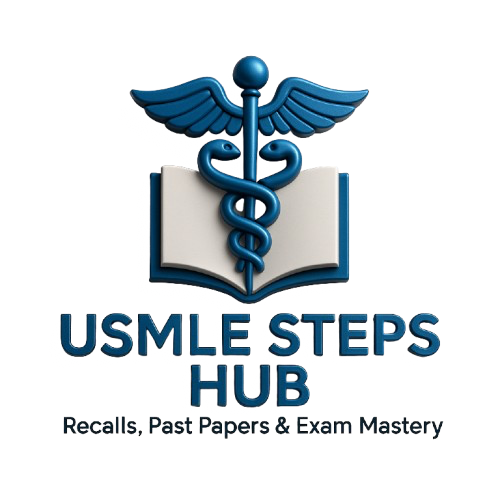The USMLE journey—from Step 1 through Step 3—is a marathon, not a sprint. With Step 1 now pass/fail since 2022, the stakes for Step 2 CK and clinical exams like CBSE, Shelf, and CCSE have never been higher. Residency programs are leaning harder on these scores to differentiate candidates.
Recalls have become a go-to resource for many students, offering real exam insights and high-yield repeats. Whether you're tackling Step 1 basics or grinding through Step 3’s CCSE cases, structured prep with updated materials (2025-2026) can make all the difference. Let's break down what works and how to adapt.
(Note: Always prioritize ethical study methods and official NBME/USMLE resources alongside recalls.)
USMLE Step 1: Navigating the Pass/Fail Era
The shift to pass/fail scoring for Step 1 reshaped how students approach this exam. While the pressure to hit a three-digit score is gone, the focus has pivoted to efficient, high-yield prep. With residency programs weighing Step 2 CK more heavily, Step 1 now serves as a foundation—not a make-or-break hurdle. Here’s how to adapt.

Photo by Andrea Piacquadio
Key Changes in Step 1 Scoring
- No numerical scores: Since 2022, results only show Pass or Fail. The minimum passing standard remains unchanged as of 2025.
- Shifted emphasis: Residencies now scrutinize Step 2 CK scores, clinical grades, and shelf exam performance more closely.
- Less stress, same rigor: The exam still tests foundational science, but the stakes feel different. Overstudying won’t boost your application—balancing Step 1 with clinical prep will.
Top Resources: Recalls vs. Traditional Study
Recalls—questions shared by recent test-takers—offer a unique edge:
- Higher reuse rates: Exam pools rotate slowly, so recalls often include 50-80% repeats. Bundles like the 2024-2025 Step 1 Recalls mirror actual exam content.
- Efficiency boost: They highlight frequently tested concepts, letting you prioritize what matters.
But don’t ditch traditional resources. Pair recalls with:
- UWSA (UWorld Self-Assessments)
- NBME practice exams
- Anki for long-term retention
How Recalls Impact Study Planning
Integrating recalls requires strategy:
- Timing matters: Introduce them 2-3 weeks before your exam, as active recall reinforces memory under pressure.
- Cross-validate: Use recalls to spot knowledge gaps, then drill those topics with UWorld or First Aid.
- Avoid dependency: They’re a supplement, not a standalone plan. Balance them with foundational study to ensure broad comprehension.
The pass/fail era rewards smart prep—not just hard work. With recalls and targeted resources, you can streamline your Step 1 journey and save energy for the exams that now carry more weight.
USMLE Step 2 CK: The Residency Game Changer
With Step 1 now pass/fail, Step 2 CK has become the defining exam for residency applications. A strong score here (think 260+) can open doors to competitive specialties—but it demands a strategic blend of clinical knowledge and test-taking precision. The 2025-2026 exam cycles show an 80% reuse rate in question pools, making recalls a powerful tool for high achievers.

Photo by Pixabay
Interpreting the 80% Reuse Rate
The Step 2 CK question pool changes slower than most realize. Here’s what that means:
- Repetition is predictable: Past questions reappear with slight wording tweaks. Recent Reddit threads confirm test-takers encounter familiar concepts.
- Targeted prep wins: Focus on high-yield recalls mirrors the exam’s recycling trend.
But don’t assume all questions repeat. The remaining 20% can surprise you—so pair recalls with broad-based study.
Premium Package Breakdown
Top-tier recall packages, like the Step 2CK Premium Recalls/Past Papers, offer:
- Guaranteed repeats: Verified overlaps with recent exams.
- Clinical context: Annotations explain why answers work in real-world practice.
- 2025 updates: Refreshed content aligns with post-pool changes.
For surgery or IM aspirants, these are non-negotiable. But remember: recalls amplify—not replace—foundational resources.
Balancing UWorld with Recall Practice
UWorld’s explanations build clinical reasoning, while recalls sharpen timing and pattern recognition. Here’s how to blend them:
- Phase 1 (8+ weeks out): Master UWorld’s question logic. Aim for 80%+ correct on random blocks.
- Phase 2 (4-6 weeks out): Layer in recalls. Use them to identify recurring themes, like ethics or drug ads.
- Final stretch (2-3 weeks): Simulate exam conditions with recall-heavy blocks.
As one 275 scorer noted, “UWorld teaches you medicine—recalls teach you the test.” Allocate 70% of study time to UWorld early on, shifting to 50/50 by test day.
USMLE Step 3 & CCS Case Mastery
Step 3 is the final hurdle before residency, blending MCQ stamina with clinical decision-making under pressure. The two-day structure demands different skills—Day 1 tests broad medical knowledge, while Day 2’s CCS cases assess real-time patient management. With a 90% repeat probability in CCS cases, mastering patterns is key.

Photo by SHVETS production
Day 1 MCQ Strategies
Day 1 mirrors Step 2 CK but digs deeper into diagnostics and management. Focus shifts from memorizing facts to applying them—fast. Here’s how to approach it:
- Time management is critical: Allocate 60-90 seconds per question. Flag tough ones and move on. Recent test-takers on Reddit stress this avoids last-minute rushes.
- Drug ads and abstracts: These consume time but are predictable. Practice dissecting them with UWorld’s Step 3 QBank.
- Biostats review: Heavy on Day 1. Use the IT SCARS method (Identify, Track, Solve, Confirm, Answer, Review, Summarize) for abstract questions.
Day 2 CCS Case Walkthroughs
CCS cases make or break Day 2. The software feels clunky, but cases repeat often—like post-op fever or chest pain. Here’s how to dominate them:
- Start with immediate actions: Order vitals, oxygen, and IV fluids if unstable. The CCS Case Simulator grades you on timeliness.
- Think in clusters: For chest pain, bundle EKG, troponin, aspirin, and nitroglycerin. This mirrors real clinical workflows.
- Document efficiently: Use preset orders (e.g., “CHF package”) to save clicks. Time wasted typing hurts your score.
Recent recalls show cases recycle with minor tweaks. A neonatal jaundice case in 2024 reappeared in 2025 with adjusted lab values. Stay alert—but don’t overcomplicate.
Pair recall bundles with UWorld’s CCS cases for pattern recognition. As one 237 scorer noted, “CCS is 50% medicine, 50% learning the software.” Dedicate 2-3 weeks to mock cases, adjusting for speed and accuracy.
The goal? Walk out knowing you treated every virtual patient like a real one.
